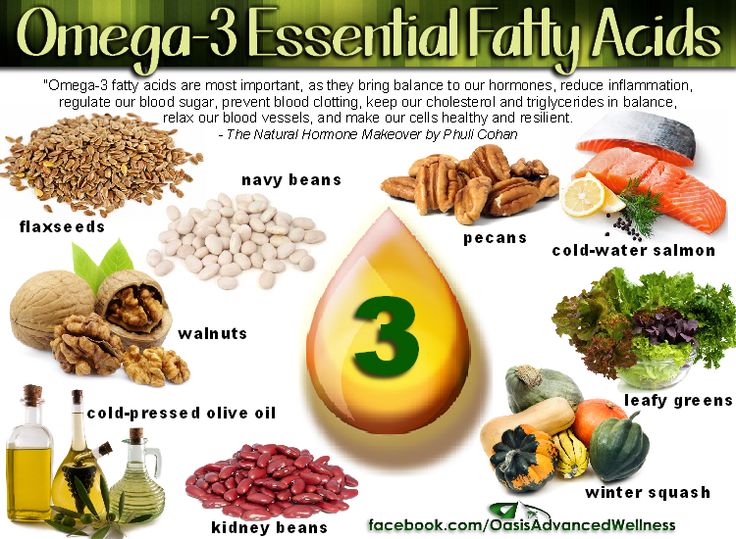Omega is the last letter of the greek alphabet, used by chemists to refer to the position of the first double bond from the methyl end of a fatty acid. Omega fatty acids are all needed by the body. There are essential fatty acids (EFAs), meaning the body can’t make them and needs to obtain them from food sources, and non-essential fatty acids, ones the body can produce from other fats.
Essential fatty acids are the basic building blocks for the various cells in the body. They play a vital role in maintaining the integrity (or structure) of body tissues. Like vitamins and minerals, EFAs cannot be made by the body (hence the term “essential”) and must be obtained through the diet. Omega 3 and omega 6 fatty acids are essential, while the omega 9 fatty acids are not.
Types of Omega-3 Fatty Acids
Omega 3 fatty acids are beneficial long chain essential fatty acids that support joint health, heart health, skin health, eye function, brain function and healthy triglyceride levels. These fatty acids are not abundant in the typical American diet.
EICOSAPENTAENOIC ACID (EPA):
EPA, or eicosapentaenoic acid, is an essential fatty acid found mostly in fatty fish. This fatty acid is polyunsaturated and is liquid at room temperature. EPA plays an important role in cardiovascular and circulatory health and in supporting the body’s natural anti-inflammatory response
DOCOSAHEXAENOIC ACID (DHA):
DHA, or docosahexaenoic acid, is a fatty acid found mostly in fish and some plant sources (algae). DHA is a polyunsaturated fat that is liquid at room temperature. DHA plays an important role for vision and brain function and is vital for healthy heart function. DHA is extremely important for the healthy development of the eye and brain in developing fetuses and newborn babies. DHA is passed through the placenta to the baby, and then following childbirth it is passed through breast milk.
Did you know?
More than half of the brain is made up of fats and a majority of this is DHA, an essential fatty acid found in fish oil.
ALPHA LINOLENIC ACID (ALA): Found abundantly in flax seeds, also found in walnuts and canola oil. To a degree, ALA can be converted into EPA in the body. ALA has 18 carbon atoms.
Health organizations recommend adults consume at least 500mg to 1000mg of EPA + DHA daily. Consumption of 4-6 meals of fatty fish (mackerel, salmon, herring) per week would be needed to meet this goal.
Try incorporating fish oil supplements in your diet to get a proper balance of all the omega-3 fatty acids. Fish acquires these fatty acids through their diet, a major source being algae. These beneficial omegas, if taken regularly will help support healthy cholesterol, blood pressure and cardiovascular health, as well as promote the health of the brain, joints, eyes and skin. They also support the body’s natural anti-inflammatory response.
The fish oil supplement you buy should be able to meet your daily requirement of EPA and DHA and also needs to purified and free from any fishy burps.
